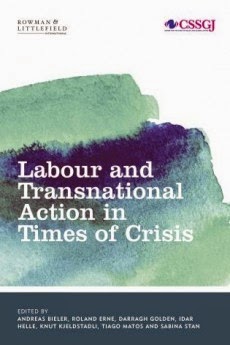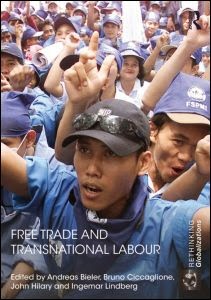The
annual Congress of the University and College Union (UCU) met in Brighton from
26 to 29 May to assess the situation of Further and Higher Education in the UK.
Since 2010 and the first Conservative-led government, Further and Higher
Education have come under significant pressure. Against the background of the
global financial crisis, salaries have fallen in real terms, the workforce has
become increasingly casualised, moves towards privatisation have been
facilitated and tuition fees have been increased to £9000 per year. And yet,
the Labour Party manifesto for the general elections on 8 June 2017 offers a
clear alternative. In this blog post, I will reflect on this possibility
against the background of discussions at the UCU Congress.
Thursday, 1 June 2017
Thursday, 25 May 2017
The Labour Party Manifesto 2017 – a clear alternative, worth fighting for!
While many in the press still wonder
about the leaking of some parts of the Manifesto and others focus narrowly on
the detailed costings, there is no doubt that this Labour Party Manifesto represents a
clear alternative to the austerity policies of the Conservative government.
Abolition of university tuition fees, nationalisation of rail, water and postal
services, more money for the NHS and all paid for by higher taxes on the rich,
this is a radical programme for social justice.
Friday, 12 May 2017
Greek Solidarity Co-ops: disruption of austerity beyond the electoral terrain.
Thursday, 11
May 2017, George Kokkinidis, Leicester University,
gave a seminar in the Nottingham Sumac
Centre on the objectives and principles of Greek Solidarity Co-ops
in the ongoing crisis. While Greece was bullied into accepting the restructuring demands by the
European Union (EU) in the summer of 2015, George made clear that resistance
and the search for alternatives on the ground is alive and well today. In this
blog post, I will draw on George’s presentation in an assessment of the state
of the Left and ongoing possibilities of resistance.
Friday, 24 March 2017
Britain and the EU: a merchant’s perspective.
On Wednesday, 8 March a high profile
panel discussed the future of
Britain’s relationship with the EU at Nottingham University. Nottingham’s
Vice Chancellor Professor David Greenaway was joined by Charles Clarke, former
Home Secretary under Labour, Vince Cable, former Secretary of State for
Business, Innovation and Skills in the coalition government of the
Conservatives and his Liberal Democrats in 2010. Professor Panicos Demetriades,
former governor of the Central Bank of Cyprus, complemented the panel.
Professor Jagjit Chadha of the National Institute of Economic and Social
Research was the chair. In this blog post, I will briefly comment on the discussions,
highlighting how they were a perfect reflection of Britain’s general merchant's perspective on European integration.
 |
| Photo by Mike Licht |
Friday, 17 March 2017
Reactionary working class?
Large parts of the western working class now seem to gather around right-wing
populists, demagogues and racists. They vote for reactionary and fascistoid
political parties. They helped to vote the UK out of the EU, to make Trump
president of the world's superpower number one, and they vote so massively for the
far right political parties so that they have government power in sight throughout
several of Europe's most populous countries. In this guest post, Asbjørn Wahl assesses these
developments from a labour perspective and reflects on a progress way forward.
Tuesday, 28 February 2017
Betraying Europe and the danger of collapsing integration.
 |
| Photo by Wolf Gang |
Thursday, 9 February 2017
Training for Exploitation? Politicising Employability & Reclaiming Education.
Employability is a powerful and increasingly dominant word within
the universities. Nottingham University is proud to be “ranked in the world top 100 Universities for employability”. This
is because students are now the main funder of universities. And
employability provides the answer to why the £9.250 tuition fees per year are
worth it – even if one needs to in-debt oneself for this investment.
Consequently, employability services
are not only spreading like wildfire but also academic staff is increasingly
pressurised to demonstrate in what ways their course facilitates students'
employability. For these employability educators the Precarious Workers
Brigade just published a book
called “Training for Exploitation? Politicising
Employability and Reclaiming Education” (a free pdf is available online). The book offers a
“critical resource pack to assist teachers and students in deconstructing dominant narratives around work, employability
and careers, and explores alternative ways of engaging with work and the
economy”. In this guest post Vera
Weghmann introduces the book by explaining what employability is and why it
needs to be politicised.
Subscribe to:
Posts (Atom)














